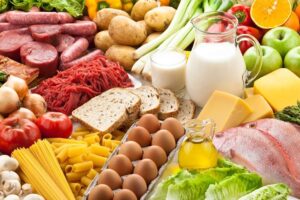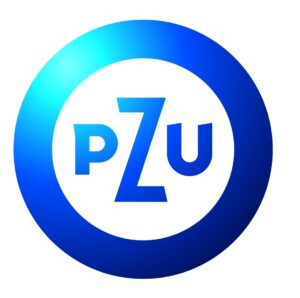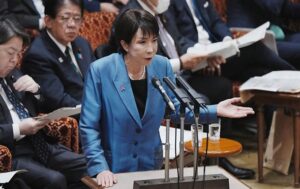
Das Volumen der landwirtschaftlichen Produktion ging im Zeitraum Januar bis Oktober 2025 gegenüber dem gleichen Zeitraum des Jahres 2024 um 12,4 % zurück, teilte das Staatliche Statistikamt mit.
So lag der Index der landwirtschaftlichen Produktion in der Ukraine nach den Ergebnissen der ersten zehn Monate dieses Jahres bei 87,6 % gegenüber Januar bis Oktober des Vorjahres. Insbesondere erreichte der Index für pflanzliche Produkte 85,7 % und für tierische Produkte 96,5 %.
Etwas größere Verluste verzeichneten landwirtschaftliche Betriebe, deren Produktion 85,1 % des Vorjahresniveaus betrug. Dabei erreichte der Index für pflanzliche Erzeugnisse 82,5 % und für tierische Erzeugnisse 99,0 %.
Gleichzeitig ist der Indikator in den privaten Haushalten besser – 93,6 %. Bei pflanzlichen Erzeugnissen betrug er 93,9 %, bei tierischen Erzeugnissen 92,5 %.
Ein deutlicher Rückgang der Produktion wurde in der Region Donezk verzeichnet, wo sie nur 56,6 % des Vorjahreswertes erreichte. Ein relativ deutlicher Rückgang wurde auch in den Regionen Cherson (69 %), Dnipropetrowsk (77,3 %) und Chmelnyzkyj (77,0 %) verzeichnet.
Nur eine Region verzeichnete eine positive Entwicklung. In der Region Transkarpatien betrug die Produktion landwirtschaftlicher Erzeugnisse 103,5 %. Dabei wurde ein Wachstum der pflanzlichen Produktion in der Region von +1,7 % und der tierischen Produktion von +7,2 % verzeichnet.

Poland’s PZU will invest at least PLN 4 billion in the Innovate Poland program to stimulate the development of innovative domestic companies with high potential, according to the PZU website.
“At least PLN 4 billion will be invested through private equity and venture capital funds in about 250 companies. This is the first phase of the project, conceived as a platform to which additional institutions and investors will join in the next phases to jointly scale investments,” the information emphasizes.
In addition, it is reported that the Innovate Poland concept is based on the experience of the French “Plan Tibi”, which has significantly strengthened the French market for innovative investments in recent years. The budget of the first phase of Innovate Poland is PLN 4 billion, provided by development institutions: the Polish Development Fund (PFR), Bank Gospodarstwa Krajowego (BGK), the European Investment Fund (EIF) and Powszechny Zakład Ubezpieczeń (PZU) – the first commercial partner of the project.
The program is implemented under the patronage of the Minister of Finance and Economy. Its formula is designed to allow the addition of additional institutions and investors in subsequent phases, systematically increasing the scale of financing and strengthening the economic impact of the program.
PZU ((Powszechny Zakład Ubezpieczeń Spółka Akcyjna) is a Polish insurance company, one of the largest insurance companies in Central and Eastern Europe. It offers a wide range of insurance services, including life and property insurance.

Gold prices are declining on Thursday amid the strengthening of the dollar before the publication of statistical data on the U.S. labor market. By 14:02 Q2 quotations of December gold futures on the Comex exchange fell by about 0.5% to $4061.5 per ounce.
The U.S. Department of Labor will release a report on the U.S. labor market for September at 15:30 Q2. The report is expected to show job growth of 50,000 and unemployment remaining at 4.3%, Trading Economics noted. It is published late due to the shutdown.
ICE’s DXY index, which shows the dollar’s performance against six currencies (euro, Swiss franc, yen, Canadian dollar, pound sterling and Swedish krona), added about 0.1%.
Meanwhile, analysts at UBS upgraded their forecast for gold to $4500 an ounce from $4200 an ounce by mid-2026. They believe that gold will be supported by the Federal Reserve’s easing monetary policy, as well as geopolitical uncertainty, increasing demand for protective assets.
Earlier, the Experts Club think tank presented an analysis of the world’s leading gold-producing countries in its video on Youtube channel – https://youtube.com/shorts/DWbzJ1e2tJc?si=YuRnDiu7jtfUPBR9.

On Thursday, the Chinese Ministry of Commerce said that Japanese Prime Minister Sanae Takaichi’s remarks on Taiwan had a negative impact on Sino-Japanese economic relations.
“Prime Minister Takaichi’s erroneous remarks on Taiwan, made in public, have fundamentally undermined the foundation of China-Japan relations and seriously damaged bilateral economic and trade ties,” Western media quoted ministry spokesman He Yongqian as saying.
“If the Japanese side continues to take such actions and continues to move in the wrong direction, China will resolutely take the necessary measures, and all the consequences will fall on Japan,” she promised.
The media reminds us that China is the second most important market for Japan. In 2024, according to the UN, China purchased $125 billion worth of Japanese goods, mainly industrial equipment, semiconductors, and automobiles.
In November, Takaichi said that an emergency situation around Taiwan involving the use of force could escalate into a “situation that threatens Japan’s survival”; the Kyodo news agency explained that in such a case, Tokyo could resort to its right to collective self-defense.
However, the Chinese authorities consider the Taiwan issue to be an internal matter for China and called on Takai to retract his statements. As a result, Beijing urged its citizens to avoid traveling to Japan and recommended that those wishing to study in that country reconsider their decision in light of the security situation. The Kyodo news agency also reported, citing a source, that China had informed Japan of the suspension of imports of Japanese seafood
. On Thursday, US Ambassador to Japan George Glass condemned these measures by the PRC and called them “economic coercion.” After meeting with Japanese Foreign Minister Toshimitsu Motegi, he assured that the US is committed to ensuring Japan’s defense, including the Diaoyu Islands (Japanese name: Senkaku) in the East China Sea, which are controlled by Tokyo. The islands are the subject of a territorial dispute between Japan and China.
According to Kyodo, 64-year-old Takaichi is known for her “hardline views on security.” In particular, she advocates revising Article 9 of the 1947 Japanese Constitution, which renounces militarism. She is also considered a supporter of ultra-right and nationalist views.
The Taiwan issue arose in 1949 when the People’s Republic of China was proclaimed and part of the Chinese Kuomintang party settled on the island of Taiwan, naming it the Republic of China on Taiwan. Beijing insists on the “one China principle,” according to which it is impossible to recognize both the PRC and the Republic of China on Taiwan at the same time. At the same time, some states have unofficial cultural and economic offices of Taipei.

PrivatBank, which launched the purchase and sale of domestic government bonds (OVDP) in the Privat24 web app a year ago, has expanded this service to its mobile app.
“The new functionality allows you not only to invest, but also to fully control your portfolio: view securities balances, transaction history, coupon receipts, and redemption payments,” the bank said in a statement on its Telegram channel on Thursday.
According to the message, a new investment section called “Bonds” has been opened, where customers can buy and sell government bonds and manage their securities.
PrivatBank reminded that you can invest in government bonds in Privat24 starting from UAH 1,000. According to the message, the section offers a wide selection of bonds in hryvnia, dollars, and euros without tax fees and without additional purchase commissions. To get started, simply select the desired OVDP issue, fill in the details, and sign the documents via SmartID. Purchase and sale applications are accepted 24/7.
According to the bank, its customers are actively investing in OVDPs: since the beginning of 2025 alone, they have invested over UAH 21 billion in government securities. The most popular remain six-month and one-year hryvnia bonds, as well as US dollar-denominated securities. Most clients who receive redemption payments immediately reinvest them in new issues of the Ministry of Finance, the report says.
As reported, PrivatBank topped the Ministry of Finance’s rating of primary dealers in the OVDP market in 2024. As of early September 2025, it owned OVDPs worth UAH 344.51 billion, or 39% of the total bank OVDP portfolio.
According to the Settlement Center for Servicing Contracts on Financial Markets (RC, Kyiv), last year the number of registered investors in Ukraine increased from 166,120 to 197,790, and as of November 1, it reached 216,680.
As of October 2025, PrivatBank’s active customer base consisted of 18.1 million individuals, which is 220,000 fewer than at the end of 2024, and the number of users of the Privat24 mobile app decreased by 150,000 to 13.61 million people. On the other hand, the number of business clients increased by 20,000 during this period, to 930,000.

The Agro-Region agricultural holding has created a mobile application for working with land lease agreements, according to a Facebook post by the holding’s press service.
The land department of Agro-Region noted that daily work with a large number of contracts required a solution that would reduce the time spent searching for and processing them.
“We had to ensure quick access to contracts in the field and synchronization with the ERP system. This became a key task during development. The application was created by the company’s internal specialists. During the work, we used artificial intelligence tools, in particular JetBrains AI Assistant. AI accelerated some of the processes, but the architectural solutions and logic were formed in accordance with business requirements. This allowed us to obtain a simple and reliable tool,” explained Vadym Yanchuk, CIO of the Agro-Region group of companies, whose words are quoted in the report.
The application allows you to work offline, conduct contract inventory, transfer and accept contracts between employees, automatically generate transfer acts in ERP, scan QR codes on contracts for instant access, search for contracts by name, cadastral number, or other parameters, according to the release.
“The application has become part of the digital transformation of the land department. Its implementation has reduced operational time costs, increased the accuracy of contract processing, and optimized interaction between departments,” the agricultural holding noted.
Agro-Region agricultural holding owns a land bank of 39,000 hectares in the Kyiv, Chernihiv, Zhytomyr, and Khmelnytskyi regions. It specializes in crop production. It consists of 11 companies, which are united into four crop clusters. It has two elevators: Boryspil with a capacity of 73,000 tons and Myropil with a capacity of 52,000 tons.
Agro-Region’s annual harvest of grain and oilseeds is 200,000 tons.
In April 2021, the Swedish company Lobiu Sala AB, owned by former Ukrainian Economy Minister Aivaras Abromavičius, received permission from the Antimonopoly Committee of Ukraine to purchase the Swedish company Agro Region Stockholm Holding, which manages the Agro-Region group of companies in Ukraine.